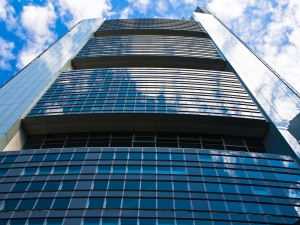 Near the end of last year, Congress passed and the president signed into law the Protecting Americans from Tax Hikes (PATH) Act, a broader, bipartisan tax bill that extended (and in certain instances, made permanent) over 50 expiring provisions of the tax code. Among a host of other pro-business tax provisions, the bill included a two-year extension of the Energy-Efficient Commercial Building Deduction, or section 179D of the tax code.
Near the end of last year, Congress passed and the president signed into law the Protecting Americans from Tax Hikes (PATH) Act, a broader, bipartisan tax bill that extended (and in certain instances, made permanent) over 50 expiring provisions of the tax code. Among a host of other pro-business tax provisions, the bill included a two-year extension of the Energy-Efficient Commercial Building Deduction, or section 179D of the tax code.
alliantgroup applauds both the PATH Act’s extension and modification of section 179D, citing the tax deduction as not only a vital incentive for U.S. job creation and economic growth, but also as sound environmental policy.
“By extending 179D, Congress has done architects, engineers and contractors a major favor as we have seen firsthand how this incentive has helped companies expand both their workforce and the scope of their services,” said Dean Zerbe, alliantgroup National Managing Director and former Senior Counsel to the U.S. Senate Finance Committee. “Not only is 179D critical to the success of U.S. designers and builders everywhere, it is simply just good tax policy, taking a completely technology neutral approach to incentivizing energy efficiency.”
Originally passed by Congress as part of the Energy Policy Act of 2005, section 179D allows the owner of a commercial building or eligible design and construction companies working on government-owned buildings at the federal, state and local levels to claim an up to $1.80 per square foot tax deduction.
Contact us today for more information on the PATH Act, 179D and the implications of the deduction’s extension for U.S. businesses.
